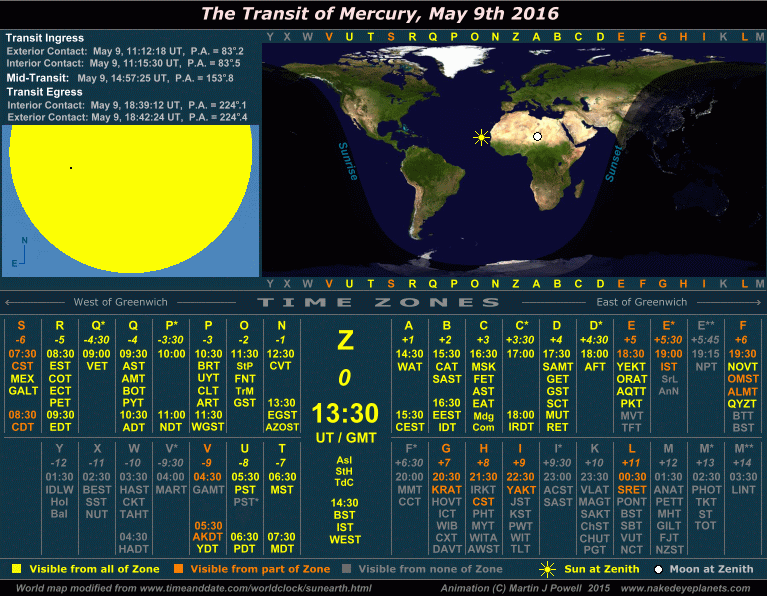Rare transit of Mercury to take place on 9 May
From phys.org:
[center]

[/center]
On 9 May there will be a rare transit of Mercury, when the smallest planet in our Solar System will pass directly between the Earth and the Sun. The last time this happened was in 2006, and the next two occasions will be in 2019 and 2032. During the transit, which takes place in the afternoon and early evening in the UK, Mercury will appear as a dark silhouetted disk against the bright surface of the Sun.
From the UK the transit begins at 1112 GMT (1212 BST), when the limb of Mercury appears to touch the limb of the Sun, and ends at 1842 GMT (1942 BST) when the limb of the silhouetted planet appears to leave the Sun. Observers in different locations will see the transit taking place at a slightly different time, as the planet will appear to take a slightly different path across the Sun.
The entire event is visible from most of Western Europe, the western part of North and West Africa, the eastern part of North America and most of South America. Most of the transit (either ending with sunset or starting at sunrise) will be visible from the rest of North and South America, the eastern half of the Pacific, the rest of Africa and most of Asia. Observers in eastern Asia, south-eastern Asia and Australasia will not be able to see the transit.
Mercury completes each orbit around the Sun every 88 days, and passes between the Earth and Sun every 116 days. As the orbit of Mercury around the Sun is tilted compared with the orbit of the Earth around the Sun, the planet normally appears to pass above or below our nearest star. A transit can only take place when the Earth, Mercury and the Sun are exactly in line in three dimensions.
more ...Looks like 9:30 edt (
http://www.nakedeyeplanets.com/mercury-transit-2016.htm ) :
[center]

[/center]
 [/center]
[/center]
 [/center]
[/center]